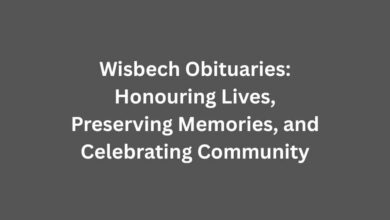Charlotte Ivers: The Rising Voice of British Journalism and Cultural Commentary

Charlotte Ivers is a name that has swiftly risen to prominence in British journalism and cultural criticism. Known for her sharp political insights and her current role as a restaurant critic at The Sunday Times, she represents the new generation of writers who seamlessly blend analytical depth with relatability. With a background in political advising at the heart of government and a flair for communicating complex issues to the public, Charlotte has become a recognisable voice across print, radio, television, and podcasts.
Early Life and Education
Charlotte Ivers was born on 1 March 1995 in England. Her upbringing blended English and Scottish roots, giving her a strong sense of identity connected to both cultures. She attended Dean Close School in Gloucestershire, a respected independent school where she distinguished herself academically and through leadership roles. She served as Head of School and also led the RAF section of the Combined Cadet Force, an experience that showcased her organisational skills and ability to inspire others.
Her academic promise led her to Pembroke College at the University of Cambridge, where she studied Philosophy. Beyond her academic studies, she demonstrated an early interest in media and public life. She wrote for student publications such as Varsity and The Tab, building her reputation as a thoughtful and articulate commentator. At Cambridge, she was also elected President of the Cambridge Union, one of the world’s most famous debating societies. This position gave her the opportunity to hone her public speaking and leadership skills while engaging with prominent political and cultural figures.
The Beginnings of a Career in Politics
Charlotte’s career path initially took her into the very heart of British politics. After university, she worked as a media adviser within 10 Downing Street. Her time there coincided with turbulent political years under Prime Ministers Theresa May and Boris Johnson. Working at such a high level of government provided her with a deep understanding of the challenges of political communication, policy strategy, and the media’s role in shaping public perception.
While this behind-the-scenes work was demanding and often politically charged, it also gave her invaluable insights into the mechanics of government. It is no surprise that when she later moved into journalism, her analyses of political developments carried an authority rooted in first-hand experience.
Transition to Journalism
After leaving government service, Charlotte Ivers embraced journalism full-time, a move that allowed her to combine her passion for writing with her political knowledge. She began working with talkRADIO and Wireless Group, where her commentary on current affairs made her a familiar voice to listeners.
Her major breakthrough came when she became a political correspondent for Times Radio. Her role required her to report on unfolding events at Westminster, break down policy debates, and interview key figures. She quickly established herself as a journalist capable of distilling complex issues into accessible analysis for the public.
Charlotte’s style is distinct: she is sharp, concise, and avoids unnecessary jargon. She has an ability to frame stories in ways that highlight their human dimension, ensuring that audiences understand not only what is happening but why it matters.
The Sunday Times and Restaurant Criticism
In recent years, Charlotte Ivers has become widely known as the restaurant critic for The Sunday Times. At first glance, this may seem like a departure from political journalism, but in reality, it reflects her versatility as a writer and observer of culture. Food criticism is about far more than reviewing dishes; it is about capturing the atmosphere of a place, its people, and the broader social trends that dining reflects.
Her reviews are characterised by wit, precision, and honesty. She is not afraid to be critical when a restaurant fails to deliver, but she also celebrates creativity, warmth, and excellence wherever she finds it. For readers, her work is both entertaining and practical: a trusted guide to Britain’s dining scene.
Media Appearances and Public Engagement
Charlotte’s presence is not confined to the printed page. She has appeared on television programmes such as Question Time and Have I Got News for You, where she demonstrates her ability to think quickly under pressure and hold her own in debates with seasoned politicians and commentators.
She also co-hosts and contributes to podcasts, including Table Talk, which explores the relationship between food, culture, and society. In this space, her personality shines through as she combines humour with a deep appreciation for food and its role in everyday life.
Her speaking engagements extend beyond journalism. She is regularly invited to deliver talks and moderate discussions on topics ranging from international affairs to the future of media. This makes her a sought-after figure not only in journalism but also in the broader landscape of cultural and political discourse.
Writing Style and Influence
Charlotte Ivers stands out because of her unique voice. She brings to her writing a mixture of authority, drawn from her political background, and accessibility, grounded in her ability to connect with everyday readers. Whether analysing Westminster politics or reviewing a new restaurant in London, she avoids pretentiousness and communicates with clarity.
Her work contributes to a larger shift in British media, where audiences increasingly value authenticity and fresh perspectives. As a young woman in a field often dominated by older voices, she provides an alternative point of view that challenges established norms while maintaining respect for tradition.
Personal Life
Charlotte’s personal life has occasionally attracted public attention, particularly her past relationship with Conservative MP Richard Holden. However, she generally keeps her private affairs out of the spotlight, choosing instead to focus on her professional work. On social media, she shares insights into her journalism, snapshots of restaurants she visits, and reflections on cultural life, offering her followers a blend of professional and personal authenticity.
Charlotte Ivers and the Future of British Journalism
The trajectory of Charlotte Ivers’ career offers a glimpse into the future of journalism in Britain. Her ability to cross disciplines—from political reporting to cultural criticism—demonstrates how modern journalists must be adaptable. Her success shows that audiences appreciate writers who can bridge the gap between politics and everyday culture.
At a time when trust in traditional media is under strain, journalists like Charlotte play an essential role in rebuilding credibility. She is part of a generation that understands the importance of engaging with audiences across multiple platforms—print, radio, television, podcasts, and social media. This adaptability ensures her continued relevance in an ever-evolving media environment.
Conclusion
Charlotte Ivers is more than a journalist or restaurant critic—she is a cultural commentator whose career reflects the changing face of British media. From her beginnings as a political adviser in Downing Street to her role at The Sunday Times, she has combined intelligence, humour, and clarity in her work. Her rise underscores the importance of fresh perspectives in journalism and highlights how the boundaries between politics, culture, and lifestyle reporting are becoming increasingly blurred.
As she continues to expand her portfolio and influence, Charlotte Ivers is poised to remain a significant voice in British journalism. Whether she is dissecting the intricacies of political manoeuvring or reviewing the latest addition to London’s restaurant scene, she offers her readers and audiences insights that are both entertaining and deeply informative.



